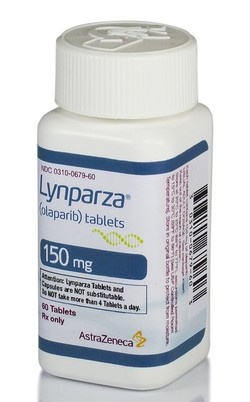A U.S. hereditary breast cancer treatment guideline recommended the use of Lynparza (ingredient: olaparib) as adjuvant therapy. Lynparza, a poly adenosine diphosphate-ribose polymerase (PARP) inhibitor, recently showed remarkable outcomes as postoperative adjuvant therapy in the OlympiA trial.
The American Society of Clinical Oncology (ASCO) announced the hereditary breast cancer management guideline update on Tuesday.

The ASCO’s 2020 guideline for hereditary breast cancer did not recommend the PARP inhibitor in germline BRCA mutated patients due to insufficient evidence.
However, after the results of the phase-3 OlympiA study of Lynparza as postoperative adjuvant therapy were presented at the plenary session at the ASCO 2021, the society included Lynparza in the treatment guideline in an unprecedentedly swift manner.
“Guideline updates have traditionally required months to review new data, assemble an expert panel, develop, approve and publish recommendations — making it difficult to provide timely support to clinicians seeking to keep abreast of rapidly advancing research,” said Clifford A. Hudis, CEO of ASCO, in a press release.
“ASCO’s new rapid guideline-updating strategy is meant to address this need by providing rapid evidence review and dissemination of practice-changing trial results.”
Under the newly updated guideline, patients with HER2-negative, gBRCA1/2 mutation-positive breast cancer with a high risk of recurrence should get Lynparza adjuvant therapy for a year after completing preoperative chemotherapy and local treatment.
According to the OlympiA trial, one-year Lynparza adjuvant therapy lowered the risk of relapse, metastasis, and death by 42 percent, compared to placebo.
Invasive disease-free survival (iDFS), the primary endpoint, was 85.9 percent in the Lynparza group and 77.1 percent in the placebo group at three years. Distant disease-free survival (DDFS), the secondary endpoint, was 87.5 percent and 80.4 percent in the Lynparza and placebo groups, respectively, at three years. Lynparza adjuvant therapy reduced the risk of distant metastasis and death by 43 percent compared to placebo.

